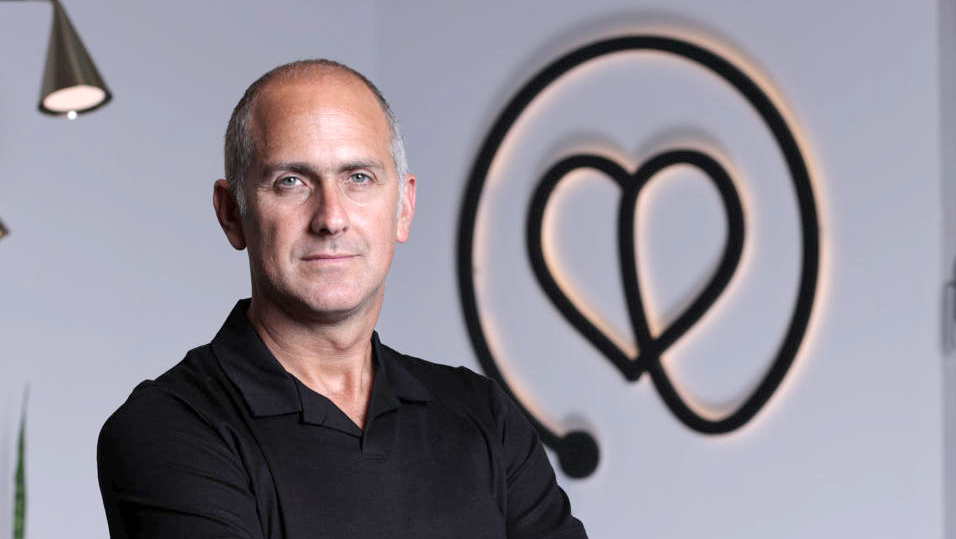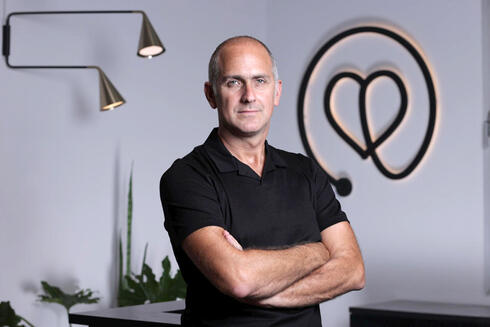
“People are willing to pay to receive personal service and not feel alone in the financial world”
According to Gal Bar Dea, CEO of the digital bank One Zero, "today’s machines can do 95% of what a person can do, but there is the other 5% that only humans can do." The interview with Bar Dea was held ahead of Tuesday's “The power of AI in banking” conference
"When you are not well you go to the family doctor, but when there is a financial question there is really no one to go to. When it comes to money, people are all alone. Our vision is to give the personal treatment that everyone is looking to get for their money, and to do that we need a lot of technology that will automate most of the work,” explained the CEO of the digital bank One Zero, Gal Bar Dea, in an interview with Calcalist ahead of Tuesday’s “The power of AI in banking.”
"In the world of autonomous banking, things that are done manually today by a money manager or a private banker will simply be done by artificial intelligence: collecting the information, cleaning it, analyzing it, and providing forecasts. Soon it will be possible to correspond with the bank's digital banker, Ella, similarly to ChatGPT.”
You mean actual free-flowing speech? Today’s correspondence is through built-in menus, I can't write everything I want.
"We are working very hard to get there and I hope we will release it in a few months. But it is already amazing. A PoC (Proof of Concept) we did dropped my jaw. And this is also what will allow us to enter additional markets in the world and provide personal banking services to masses of people without recruiting 1,000 bankers and 2,000 operators."
So Ella, who is a bot, will completely replace Arnon, the family bank clerk with whom I opened an account?
"Not completely. Today, a machine knows through a conversation to do 95% of what a person knows how to do, but there is the other 5% that only humans can do. The more the banking process is automated, the more time will be left for the human professionals to provide personal attention. Ultimately, the majority of money management will be done by an artificial intelligence system that will do financial check-ups, perform operations, make deposits and take out loans. If we want to consult regarding something very complex, all the information collected will reach a human, and that human will have more time to provide attention.”
And won't we reach a situation where a machine can do 100% of the process, including complex consultations?
"I think that in the foreseeable future, it is impossible to replace the place where human sensitivity is required. A personal banker is a kind of financial psychologist, because financial decisions are not only rational decisions but also emotional decisions. The machine is built so that it can make rational decisions for the client. It functions according to goals, for example, to bring the client to a situation where in four years they will be able to purchase a house that costs NIS 3 million. What the machine does not know how to do, yet, is to make decisions that ensure the client will be calm. This calmness is very difficult to translate. There is some human sensitivity that is difficult for a machine to comprehend at the moment.
"It is possible that along with the development of language models, machines will not only know how to reap a return, but also understand whether they gave the customer a good feeling. But in the foreseeable future, a human will have to do the final talking - to feel what is really important to the customer, what they are afraid of, and what they are not saying. After all, a language model only knows what the client tells them. A human, on the other hand, knows through the voice and body language that while one thing may have been said, the person intended to say something else or was afraid to say something else. I think there will always be a human at the end of the process, and the beauty is that they will simply have more time. They won't deal with things that a human shouldn't deal with. I think that's the power of artificial intelligence. Along with that, I'll also say that the technology has surprised me to this day. I didn't think that in 2023 there would be a language model here that would talk to me like a human being."
How do you make people feel that Ella, who is bot, knows them better than Arnon?
"There is a challenge here that is not only technological but also psychological. It is a feeling that is difficult to produce even though Ella knows you better. She will, for example, remember everything you say to her. We have a team of seven people whose entire job is to work on the way Ella talks to you - how does she answer? Is she laughing? When she tells you that you are going to go into the red, does she say it decisively or with reservations? We work very hard to create an interaction experience through which the customer will feel that they trust Ella and we see that it works great. People express higher satisfaction from correspondence with Ella than with our bankers. Someone knocked on the door here a month ago and asked to speak with Ella.”
Let's leave the future aside for a moment and discuss your pricing. I don't know young people in their early 30s who are relatively active consumers who are not afraid of technology, and are willing to pay NIS 50 a month to the bank.
"It will take time. I didn't think that people would be willing to pay for music streaming services, but in the end everyone is on Apple Music or Spotify. Ultimately, everyone will be with us. We are long-term players, with a lot of patience, and we have investors who give us breathing room. I offer an AI system available 24/7 that looks through your account all the time, and the possibility to talk to a pension advisor and an investment advisor. For most customers, the fact that yesterday they had no one to talk to and today they do is worth NIS 50."
Related articles:
How do you see it being worth it to them?
"Most customers today are on paid models. They can choose a free service that does not include access to advisors and AI scanning of the account, which actually makes it the cheapest digital bank in Israel, and despite this, the vast majority of customers choose a paid model."
It is free only for the first two months.
"True, but the customers could have chosen not to continue with the paid model. We launched this only in January-February, so now the first wave of paying customers are coming and we don't see them leaving. Most of the customers today are on paying models.
"Look, I'm saving you money, but that's not the reason I'd like you to come. Most people aren't interested in saving 10 shekels here or there. Union Bank of Israel offered incredible terms and it didn't help them attract customers. And look at what's happening with securities in banks - people pay 100 times more than they would pay in an investment house and they don't leave. The people who come to us are people who are willing to pay 50 shekels a month to receive personal service and not feel alone in the financial world. Life is too short to deal with a shekel here and a shekel there, but it is not too short to receive better service."
But at the moment the service is still not good enough. There are complaints from people on social media. For example, not everyone is able to get a bank ID.
"True, it's not working smoothly and it's not yet where we want it to be and I'm putting that on the table. Building a bank from scratch is difficult and it takes time. Everything took longer than we thought and some things cost more than we thought and there are growth difficulties. And yet, over time the system stabilizes, and we also see a sharp decrease in the number of issues."
In the past, you talked about 2022 as a big bang year in banking, with your launch and open banking. Looking back, I'm not sure you can still say that.
"I think there was a crazy explosion, and you see it in the value propositions of Discount, Hapoalim and Leumi. You have never been fought for like this as a customer in your life. Uri Levin (CEO of Discount) and Dov Kotler (CEO of Hapoalim) get up in the morning and fight for their customers. The bang is that the market started to compete - on prices, service, value propositions. When you look at the industry from the side, for 50 years this did not happen. And besides, I think that recruiting 50,000 customers in six months in a market where people do not leave their bank can not be taken for granted. In banking it takes more time, it's not mobile."
